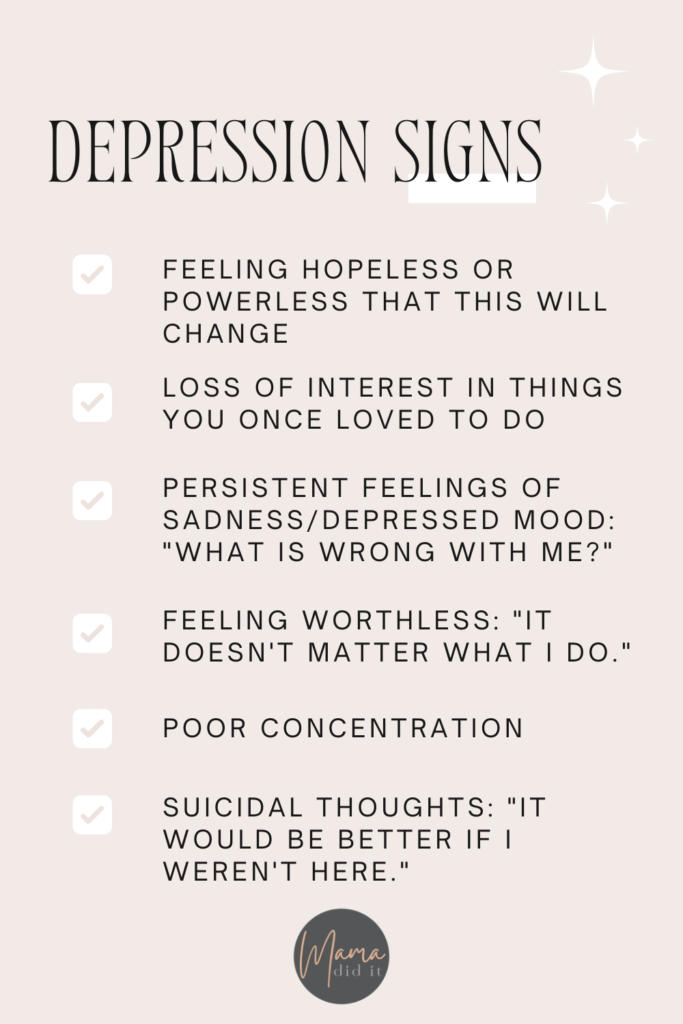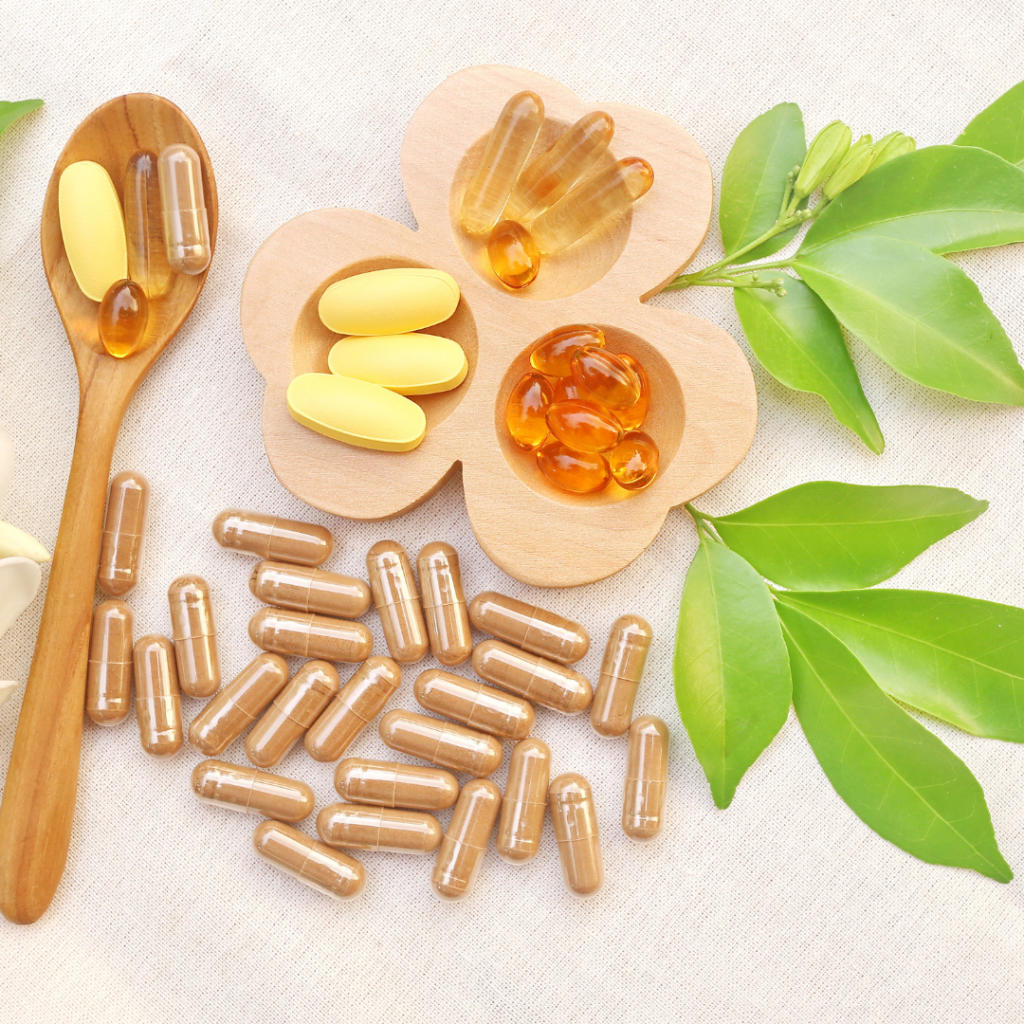Mothers struggle with depression too. Whether breastfeeding or dealing with other aspects of motherhood, here are 13 natural, proven treatments and remedies to fight depression.
Depression is hard, and you are not alone. Many of us, including myself, have struggled with depression. There is effective treatment available for you. Let’s discuss natural ways to fight depression along with remedies and treatments.
Depression is tough. Especially when we feel we don’t have a reason to be depressed. There may be outside voices that say, “This is such a wonderful time. Just enjoy it.” We may be a mom with wonderful children or a wife with a supportive husband, and we may have great friends or family. When we can’t find a “good reason” to be depressed, this can lead to shame and a secret struggle with depression. This was my story.
I am a wife and mom of 3. I’ve always been considered incredibly stable (not bragging, just a fact), but life hit me hard a couple of years ago. I suddenly found myself unable to function and unable to think clearly. This steadfast mom suddenly couldn’t put together a grocery list, much less make dinner, homeschool, or any of the other things I had been doing normally for years. I had to have help. There was no other option. See what worked for my recovery journey below.
Disclaimer alert: you should always talk with your doctor/medical practitioner before starting any kind of treatment, including herbs and such. What I offer isn’t intended as medical advice. But I will let you know my story and what helped me.

Natural Ways to Fight Depression in Motherhood (Remedies and Treatments)
Antidepressant medications are great when needed, but many of us would prefer natural ways to fight depression symptoms first. Though I personally tried natural methods initially, they weren’t enough to get me out of the hole at the time. However, I was able to go to natural methods within the year.
When I sat in front of my nurse practitioner explaining what all was going on, his words about made me fall off of my chair. “Rachel, your anxiety is situational, but you have had depression for many years.” “What???,” I sat there in shock. He continued, “The anxiety will get better as you come out of the crisis, but the depression needs to be treated.”
How did I not know that I had struggled with depression for so long?
As he spoke, things began to click for me. He was right, I had struggled with depression for a long time. I just didn’t know it because I had been on autopilot for as long as I could remember. I had been going through the motions of marriage, motherhood, work, and church for years. Functioning like that wasn’t an option anymore. My entire being was screaming, “This far and no farther!”
Symptoms of Depression
Depression doesn’t always mean sadness. Much of the time sadness does accompany depression, but it is only one of the depressive symptoms.
Depression can come in many shapes and forms. Before I crashed completely, my depression manifested in an emotional numbness and lack of feelings. I simply didn’t feel alive anymore: I wasn’t sad and I wasn’t joyful. I was in the middle where I couldn’t feel huge amounts of anything. Had I caught it early, this would have been a great time to start counseling, start supplements, and prevent a mental crash. So I encourage you if this is where you are now, go ahead and get some help.

For severe depression or major depressive disorder, you may need prescription medications for a time. There is no shame in this. If depression has been undealt with for years, as was mine, you may need medication to begin to heal. It’s not your fault. Our brains can only take so much before they can’t regulate our chemicals effectively anymore. Crisis, trauma, or even childbirth and the fourth trimester can cause brain chemical disruption. In research studies, brain function plays a big role in serotonin levels which affect mental health issues.
What is the most effective natural anti-depressant? Alternative Medicine and Natural Treatment
Herbal Supplements and herbal remedies have been shown to have a positive effect on depression improvement as well as seasonal affective disorder (SAD).
I should tell you that each of these herbs and natural treatments works differently for different people. Though 5-HTP worked well for me for a time, it didn’t seem to work for a friend. Her depression symptoms improved with St. John’s Wort. It usually takes some trial and error to find what your body needs.
If you are on any other medication, like blood pressure medicines, birth control, etc, make sure you do your research on whether any of these supplements interfere with your medicines.
Herbs that are Known for Helping Depression

If you are interested, I share exactly what worked for me at the bottom of this list.
1. St. John’s Wort
St. John’s Wort is a flowering plant that has been used for medicinal reasons for hundreds of years. In fact, it dates back to the ancient greeks. It helps with many ailments including insomnia and depression. I personally believe many plants carry the ability to help heal our problems.
2. 5-HTP
5-HTP is extracted from an African plant. It aids in neurotransmitter support and helps convert tryptophan to serotonin. This particular supplement is one that helped me when I weaned off of my antidepressant. It stands to reason that if SSRI’s (selective serotonin reuptake inhibitor) antidepressants help, then 5-HTP which helps make more serotonin available in your brain may help too. I’ve also heard it helps decrease carb cravings. Yes, please.
3. Ashwagandha
Known by another of my mommy friends as the “happy pill,” Ashwagandha is derived from an evergreen shrub. It is known as an adaptogen that helps the body resist stress, anxiety, and inflammation. It has also been proven to have other health benefits like reducing blood pressure.
4. Cod Liver Oil (omega-3 fatty acids)
Cod Liver Oil has many health benefits. Your grandmother probably swore by it. Many of us don’t get the omega-3 fatty acids we need from our daily diet. Cod Liver Oil has heart benefits and has also been proven to help with hormone stability. If your depression is hormone-related and seems to come in waves, Cod Liver Oil may be helpful. I started Cod Live Oil to help make my hair thicker but was pleasantly surprised that my emotions seemed more stable than usual during ovulation and my monthly cycle.
5. Vitamin D
Vitamin D has been proven to help with depression. This is one reason that it is recommended we go outside and get more sunshine if we are depressed. Our bodies will absorb Vitamin D from the sun. Lack of sunshine (and Vitamin D) may be a contributing factor to SAD (seasonal affective disorder). If you live in low sunlight areas, Vitamin D may be a good choice for you.
Other Natural Remedies (Natural Depression Treatment)

6. Earthing
Another great reason to get outdoors. Putting our bare feet in the grass helps ground our bodies. The earth’s electrons transfer to our bodies helping relieve stress, pain, inflammation, poor sleep, and depression. This practice has also been known to relieve jet lag.
7. Journaling
Writing helps many of us sort our thoughts and relieve the sting of our emotional pain. Sometimes we are so busy with life that we forget to process our pain. This can lead to depression later on. Journaling is a great way of releasing how you feel. Therapy is great, but when you can’t get to therapy, journal.
8. Regular Exercise (Lifestyle Changes)
Physical activity can greatly improve mood disorders and clinical depression. It also gives numerous health benefits, helps with stress reduction (which can contribute to depression), and decreases weight gain which can worsen depression as well. Even walking three times per week, or working out for at least ten minutes per day can improve our mental health. If you are newly postpartum, here’s a safe workout to start with when you are cleared for exercise.
9. Support Groups (talk therapy)
Support Groups or even small groups from your church can greatly help with what you are going through. We simply weren’t created to go through things alone. Having others to talk to and process life with can greatly help depression. Get away from the “yes men” and find people who will be real with you. Therapy can be life-giving because it presents us with perspectives we don’t get on our own.
10. Essential oils
Certain essential oils are known for decreasing stress, promoting calm, and overall improving mood. Lavender, Ylang Ylang, and Rose Oil are well-known “calm oils.” Young Living makes a great Stress Away essential oil that works well for depression and anxiety. Essential oil is a great option for quick, in-the-moment help.
11. Light Therapy
Light therapy is a great option for those who live in low-light environments or have long seasons of dark days. We know from research that sunlight is essential to Vitamin D absorption which also helps fight depression. A light therapy lamp is a great option when needed.
12. Healthy Diet
Most of us know that we need to eat a healthy diet so I won’t spend a lot of time here. But I will say that it is important. If we are feeding our bodies healthy foods, our chemicals and hormones will function better as well. Start with small choices so it isn’t overwhelming. Change refined carbs to healthy carbs. Cut out prepackaged foods like cookies and crackers. Change white rice to brown rice. Small choices will make a big impact and lead you to make bigger healthy choices.
13. Relaxation Techniques or Mindfulness Meditation
Simple breathing techniques can do wonders when we feel anxious or depressed. It can help us kick out of the fight, flight, or freeze mode and tap into our parasympathetic nervous system which can help promote calm inside of us. Mindfulness meditation techniques can be different depending on where you get your information. For me, it isn’t about emptying my mind but directing my thoughts to healthy thoughts. This involves scripture reading and anchoring myself in truth instead of whatever compulsive thoughts may be saying. Intentional thinking can help manage depression.
My Depression Journey: What Worked and What Didn’t
Before seeing my nurse practitioner, I was treating my own depression with Vitamin D and 5-HTP supplements. Though this helped, it couldn’t get me out of the deep pit I was in. At my nurse practitioner’s advice, I started Lexapro. Within two days, I noticed a huge difference. Typically it takes about 4 weeks to notice a change when you start an antidepressant. This quick change told me that the chemicals in my brain were indeed out of whack. After two days, I was able to put a frozen dinner in the oven. Success! It wasn’t the home-cooked meals I was used to serving my family, but I actually got dinner on the table. That was a win and the start of my recovery!
I was on Lexapro for approximately eight months as I came out of crisis mode and started healing mentally and emotionally. During this time I journaled like crazy. I let all of my pent-up emotions and feelings out on paper. It wasn’t pretty, but it was necessary. I had to let myself feel so I could actually heal. Seeing a therapist once a month also helped. I would also make time to get outside barefoot and admire the beautiful flowers as much as possible.
Natural Ways to Fight Depression in Motherhood
When I felt it was time, I began to wean off the Lexapro with the help of my nurse practitioner. I highly recommend you wean very slowly or you may experience rebound depression. As I weaned, I started back on 5-HTP supplements. This helped give my mood a boost as I continued therapy, healed from emotional pain, and my depression improved.
As of the time of this writing, I am completely off antidepressants and the 5-HTP supplements. I am able to manage any depressive episodes through exercise, therapy, and journaling. Healing was a process for me, as it is for most of us, but doing the work pays off. Don’t be afraid to get help when you need it.
If you are experiencing major depression or having suicidal thoughts, please see a professional or your primary care doctor. Alternative treatments work well for mild depression, but you may need more, at least for a short time if your depression is severe.
Motherhood with depression can be difficult, but this is not hopeless. Try a variety of these techniques for one month and reevaluate how you are feeling. If you haven’t seen any improvement, talk to someone and get the further help you deserve. You are worth healing.
Post may contain affiliate links
